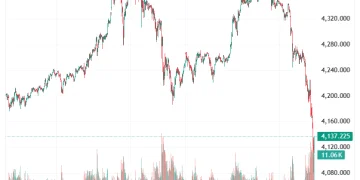Ghana’s 2025 Fiscal Outlook Faces IMF Scrutiny Amid Economic Strains
Ghana’s ability to meet key fiscal targets ahead of the International Monetary Fund’s (IMF) fourth review in April remains in question, as the country grapples with persistent inflation, widening deficits, and structural inefficiencies, according to economic advisor Dr. Wisdom Dogbey.
Speaking during the NorvanReports and Economic Governance Platform (EGP) X Space discussion on the topic, “Resetting the Economy: Can Ghana’s 2025 Budget Achieve Fiscal Stability and Sustainable Growth”, Dr. Dogbey warned that the government’s economic trajectory suggests a high probability of missing key IMF benchmarks.
“The economy remains in distress, with inflation climbing from 23.2% in 2023 to 23.8% in 2024—well above the budget target of 15% and the IMF’s central target of 18%,” he noted. “This trend undermines the government’s ability to stabilize prices and meet its fiscal objectives.”
A widening fiscal deficit has further complicated efforts to restore macroeconomic stability. The primary balance deficit, originally projected to record a surplus of 0.5% of GDP, deteriorated to a 3.9% deficit in 2024—a “significant slippage,” according to Dr. Dogbey.
He also pointed to Ghana’s substantial debt repayment obligations due in 2027 and 2028, warning that these would be a key area of focus for the IMF. “We have pretty substantial debt service obligations in the coming years, and the IMF is watching closely,” he said.
Despite these concerns, Dr. Dogbey expressed confidence in the government’s latest policy interventions. He described the 2025 budget as a “game changer,” highlighting proposed reforms in taxation, social protection, and sector-specific investments, including a $1.5 billion allocation to the Agricultural Transformation Agenda and the establishment of the Ghana Gold Board.
“These policies, if properly implemented, could drive revenue mobilization, enhance productivity, and create jobs,” he asserted. “They are bold, but that is exactly what Ghana needs at this juncture.”
The government’s fiscal credibility remains a key concern, with Ghana’s ability to meet IMF benchmarks likely to dictate investor sentiment and access to international capital markets. The April review will serve as a critical test of the administration’s ability to navigate its economic challenges while maintaining debt sustainability.








